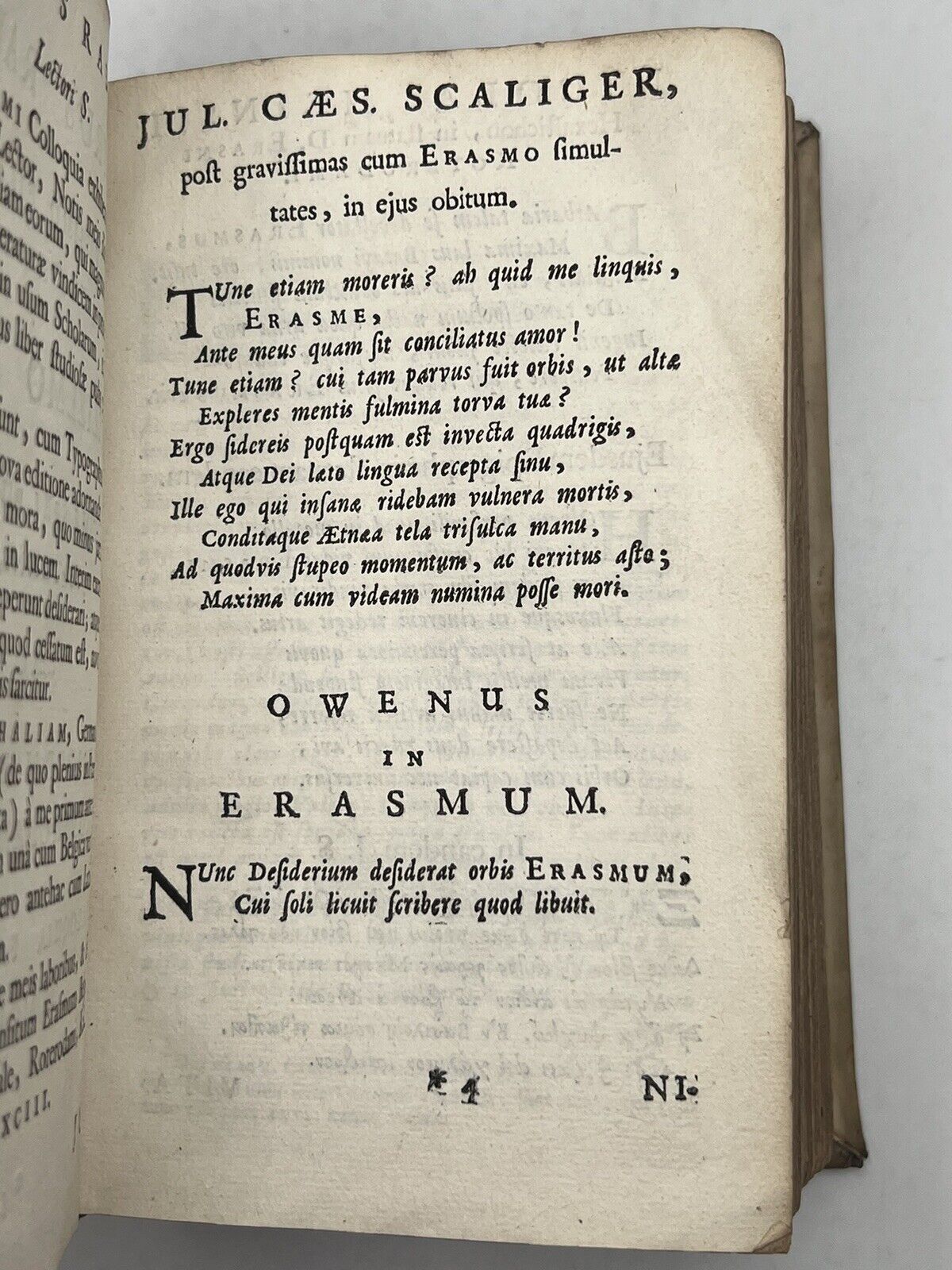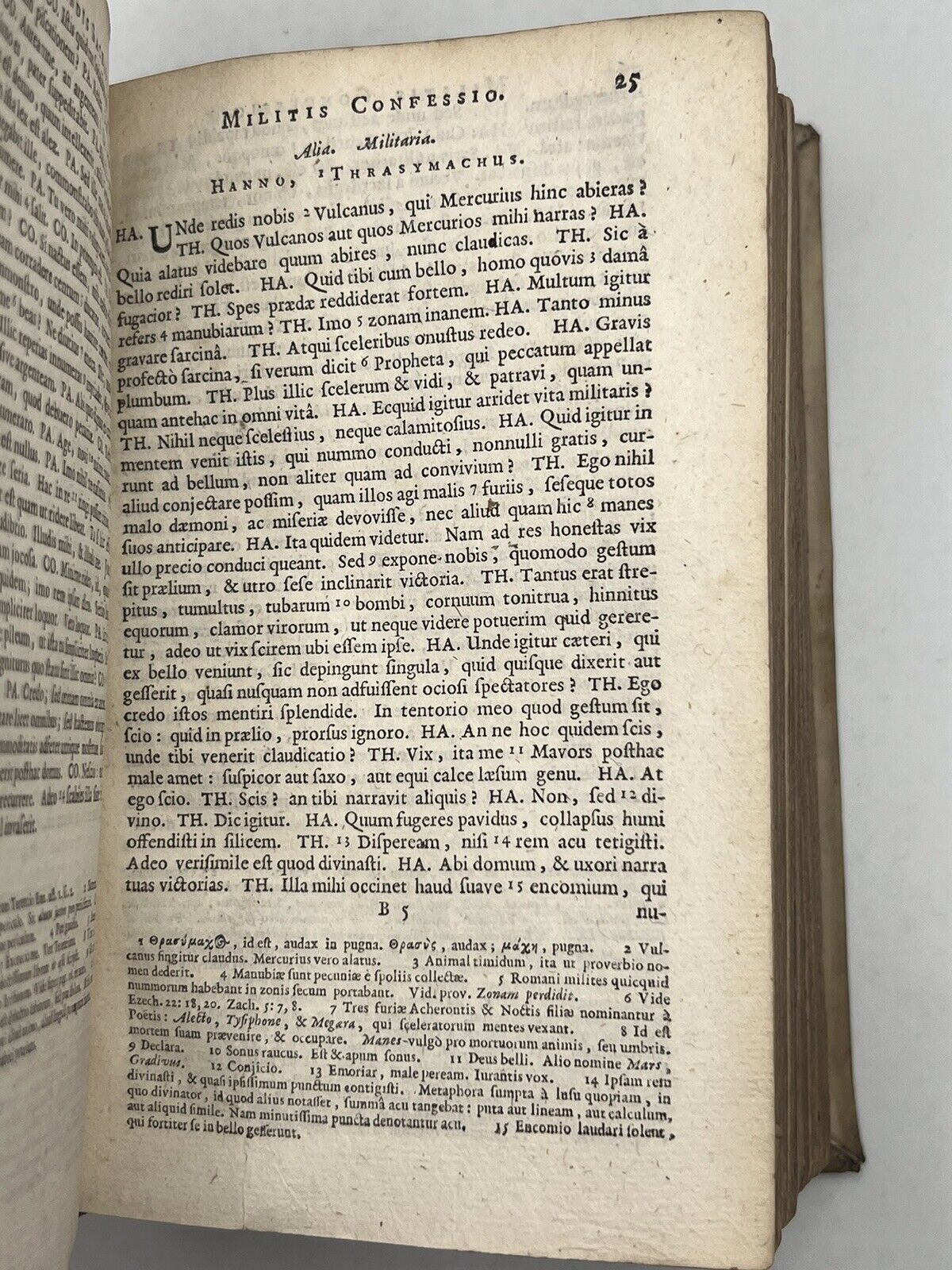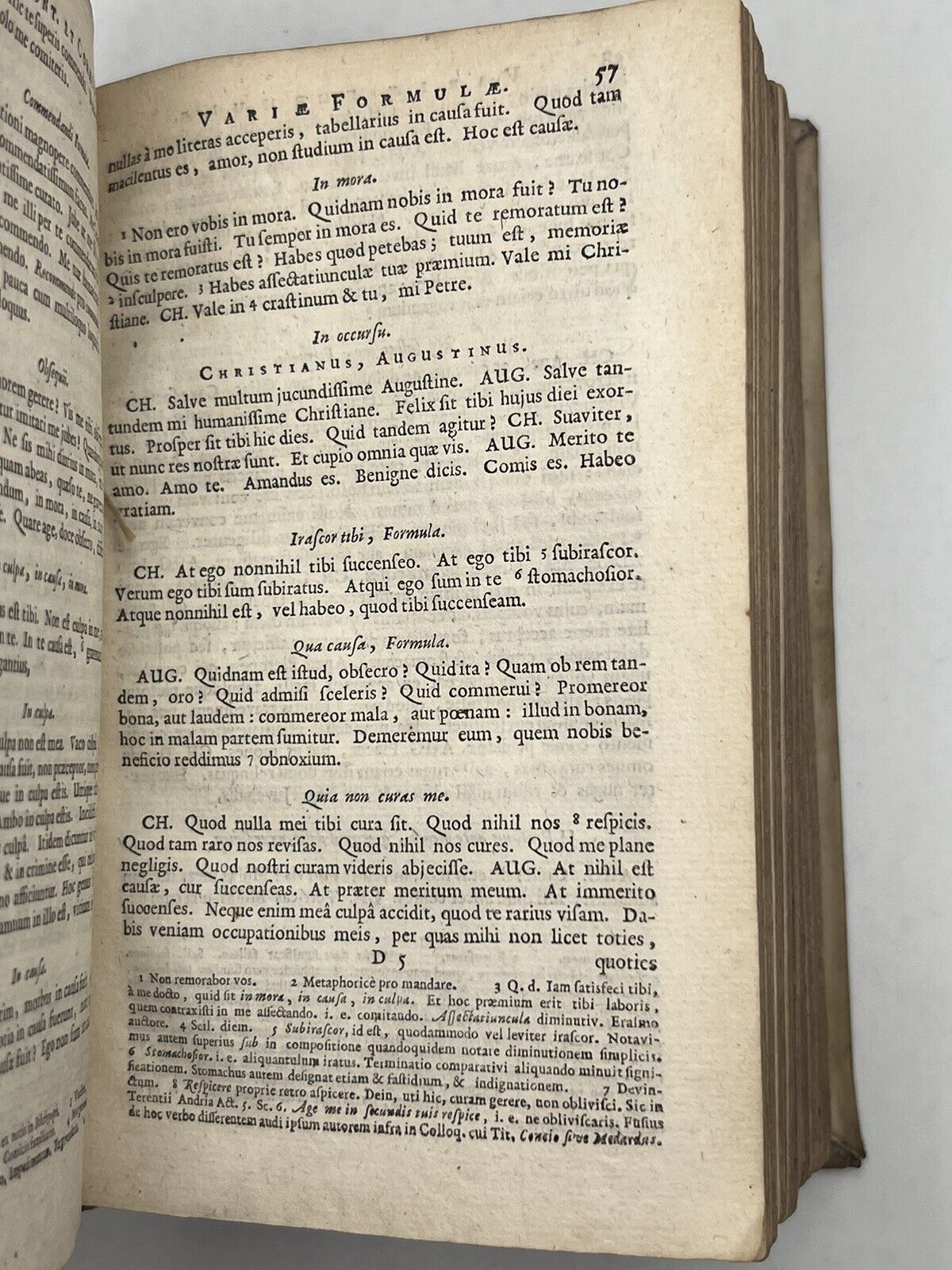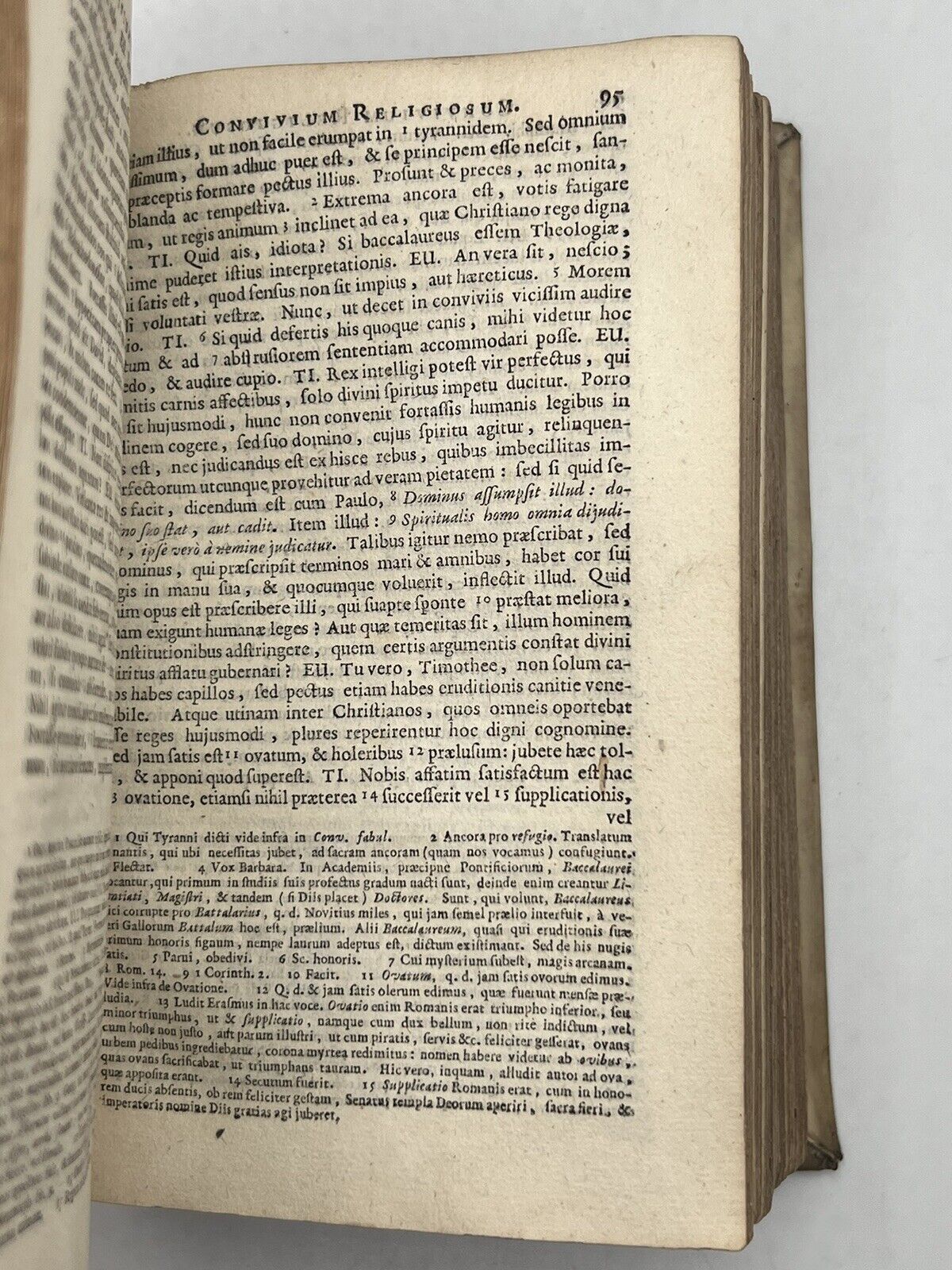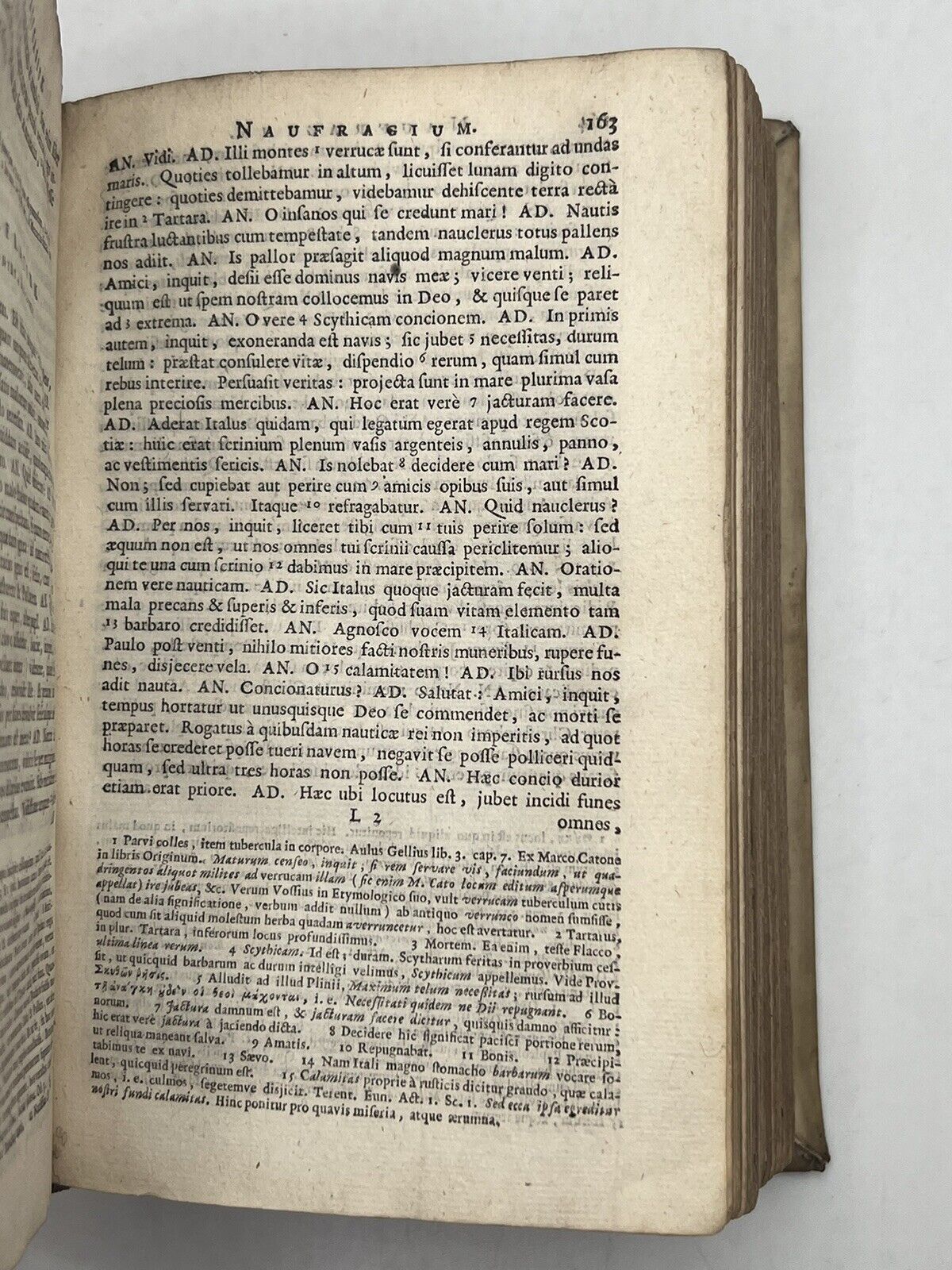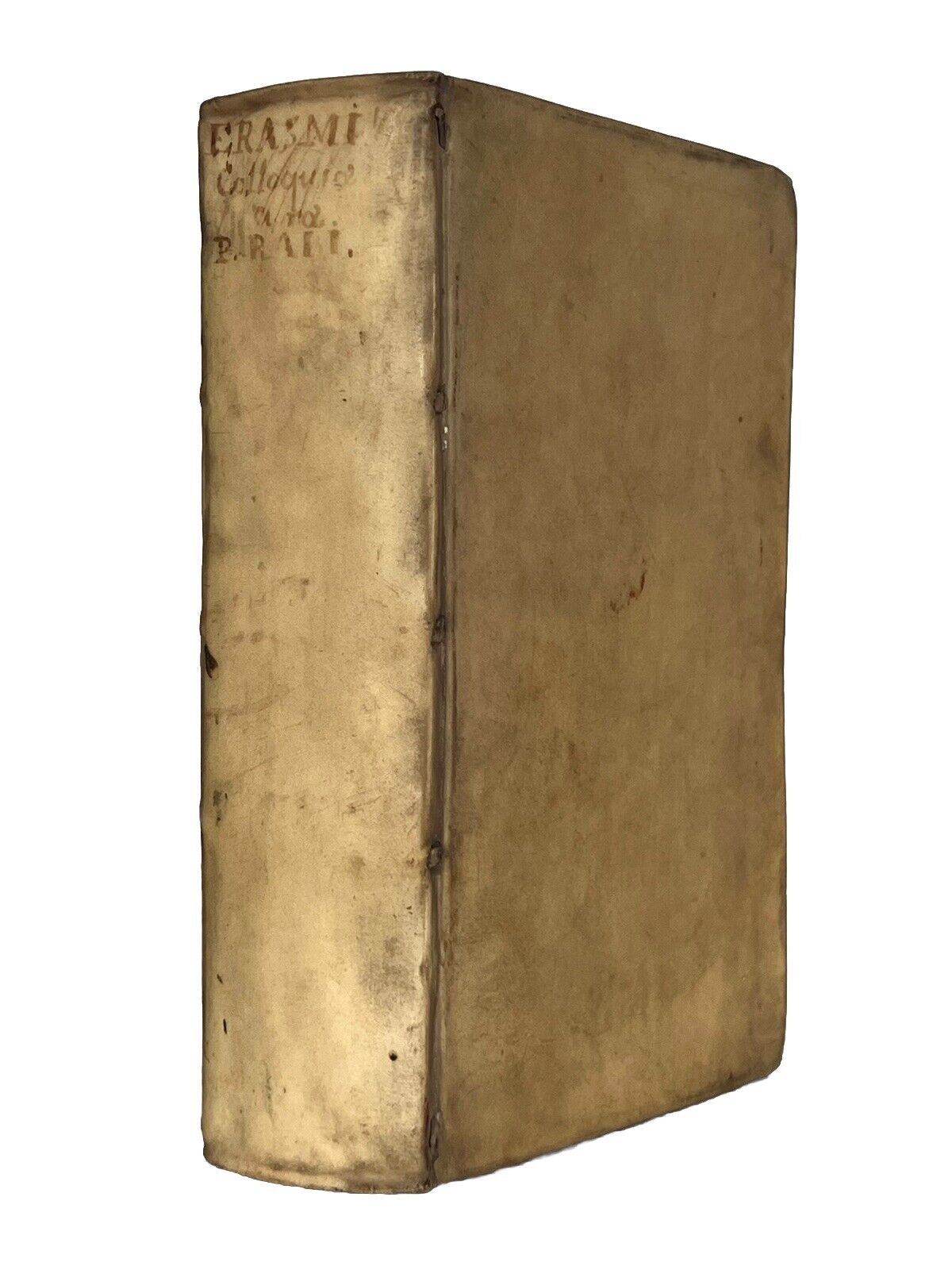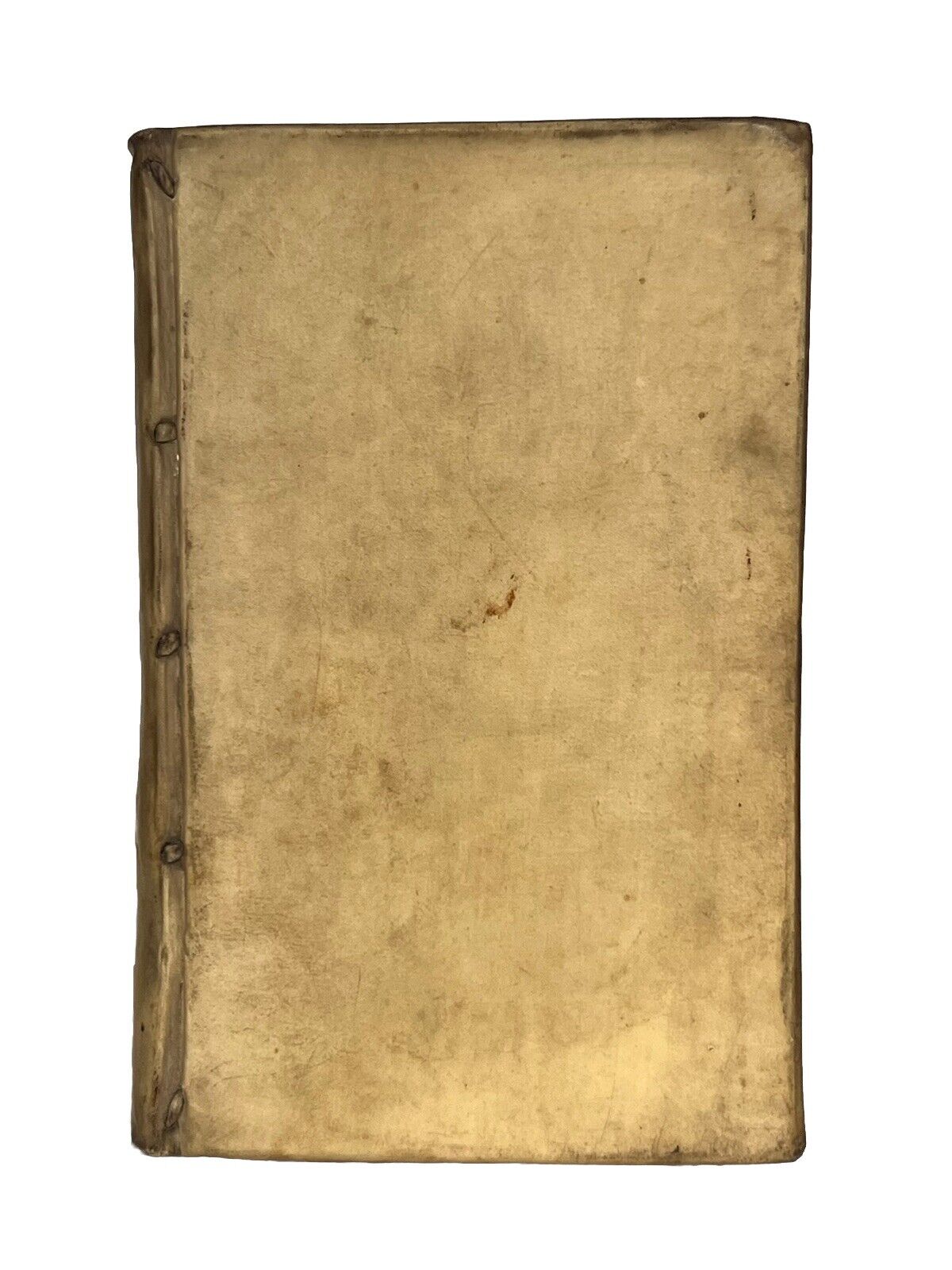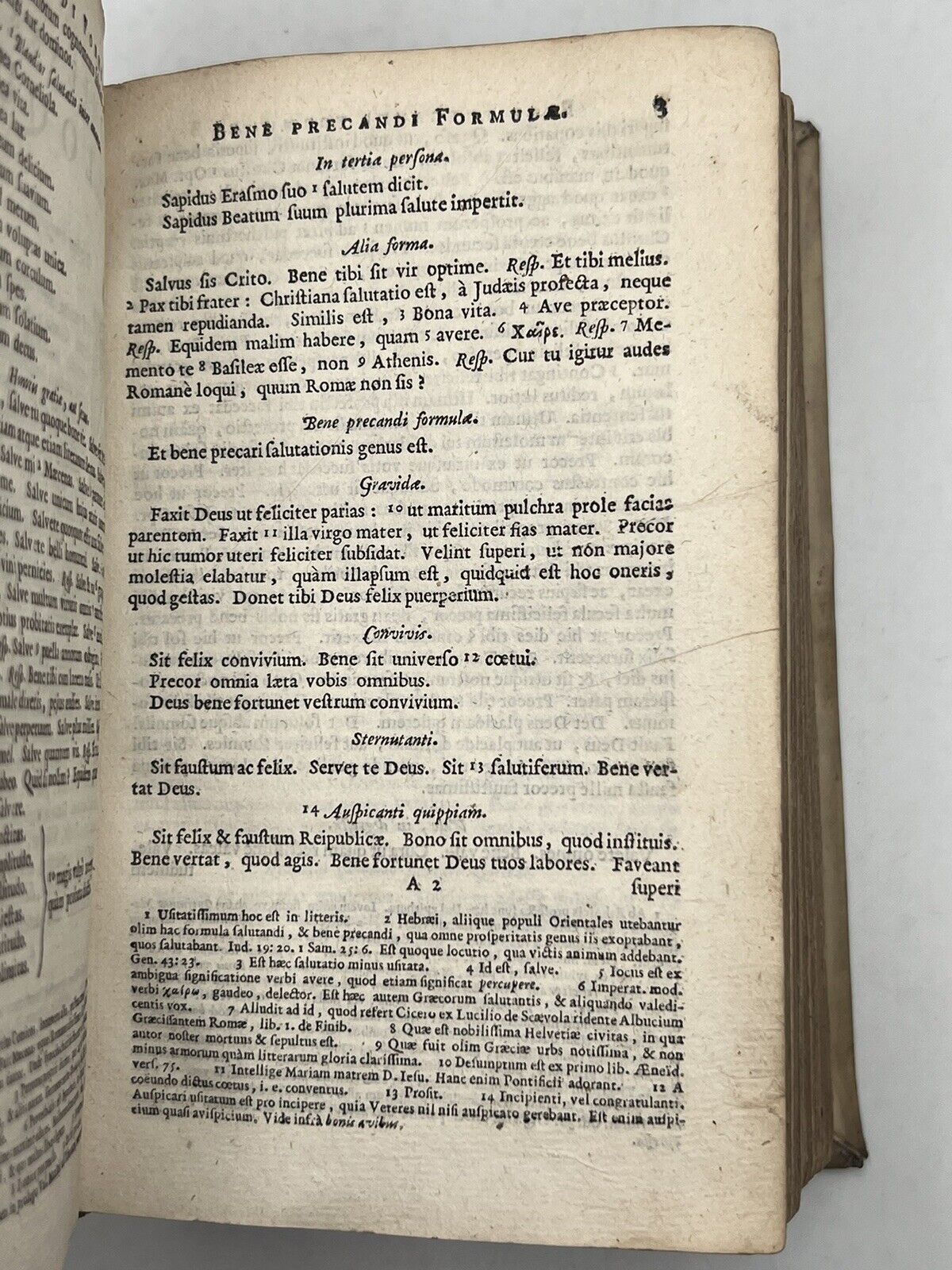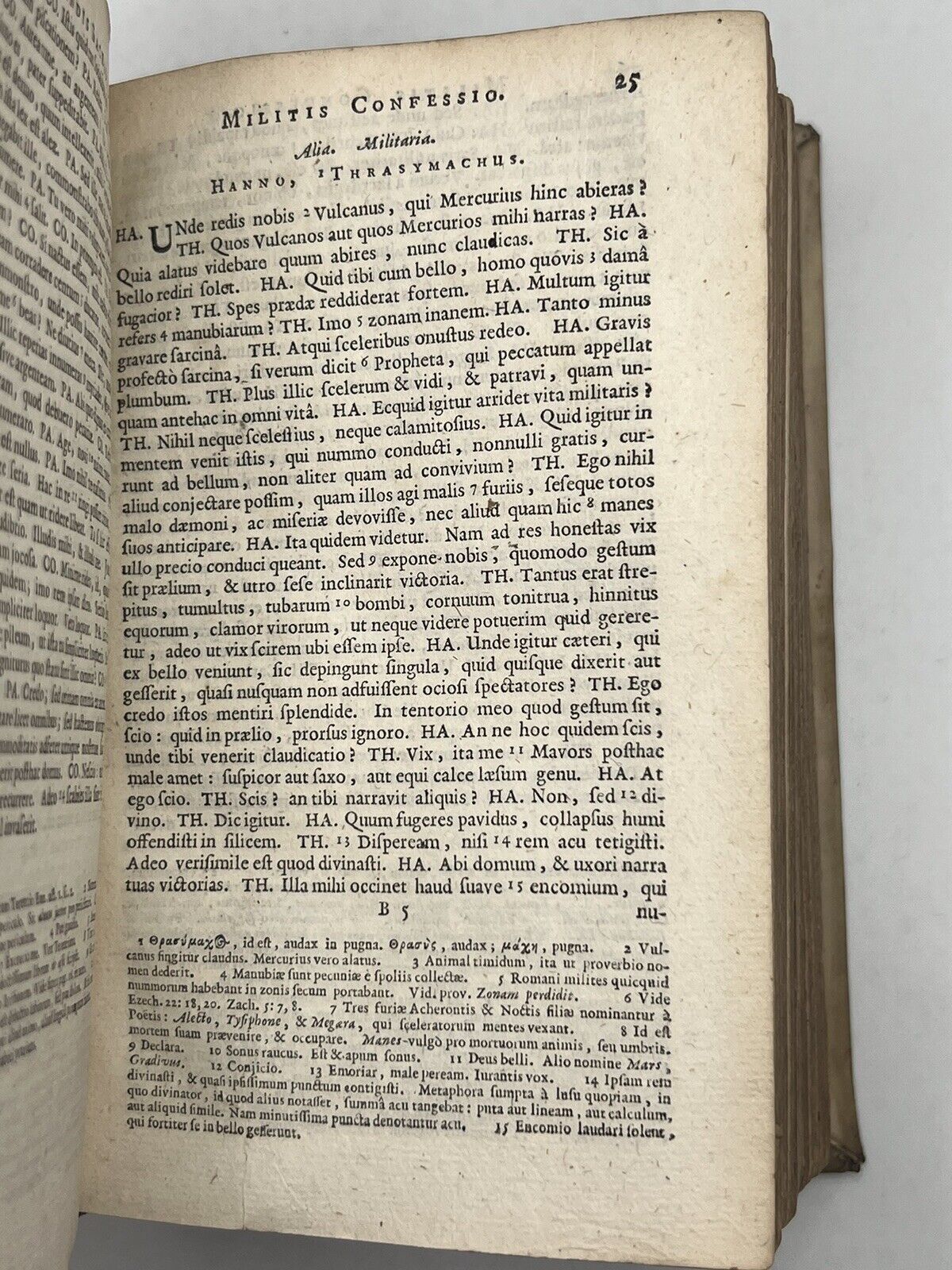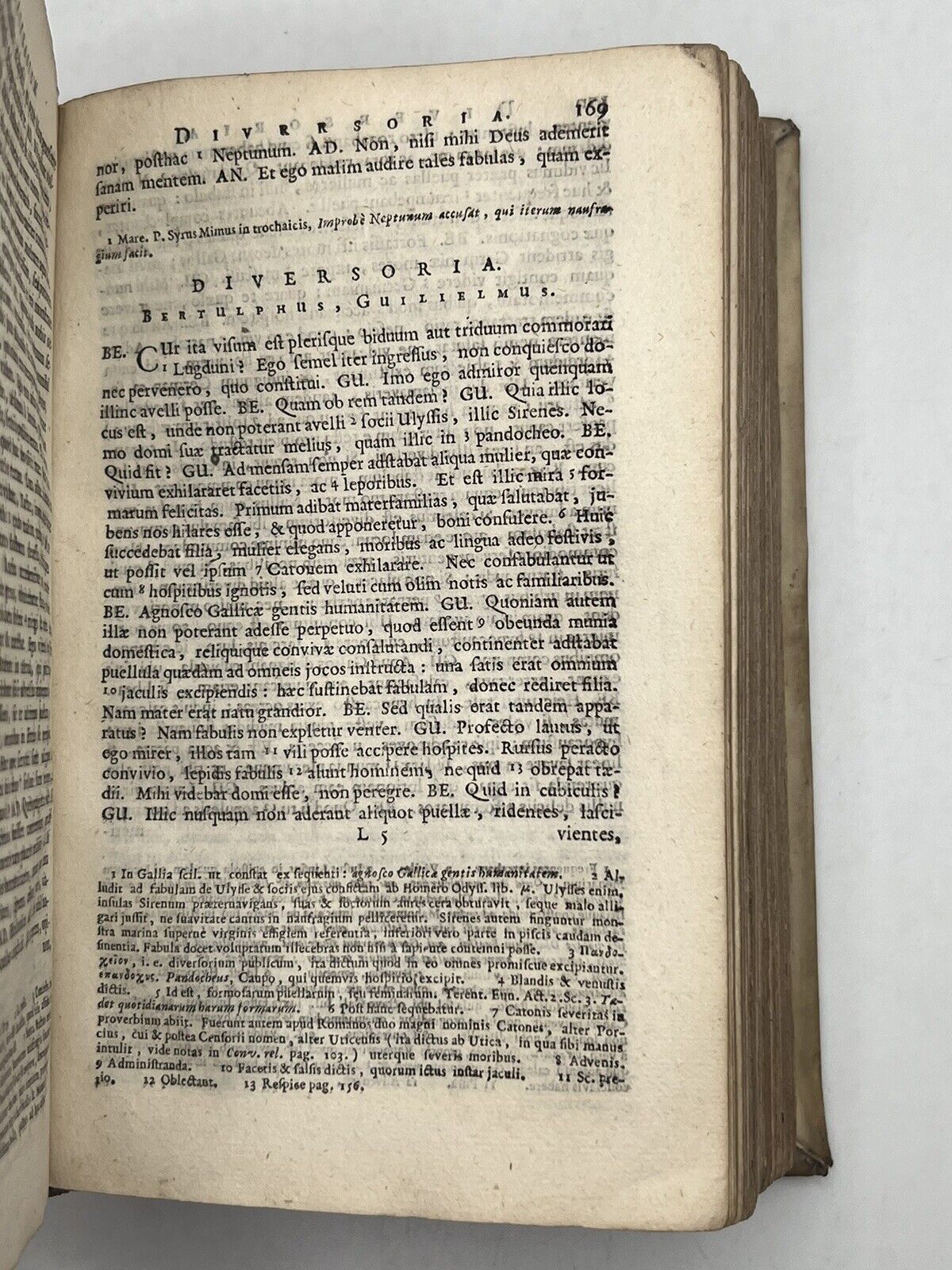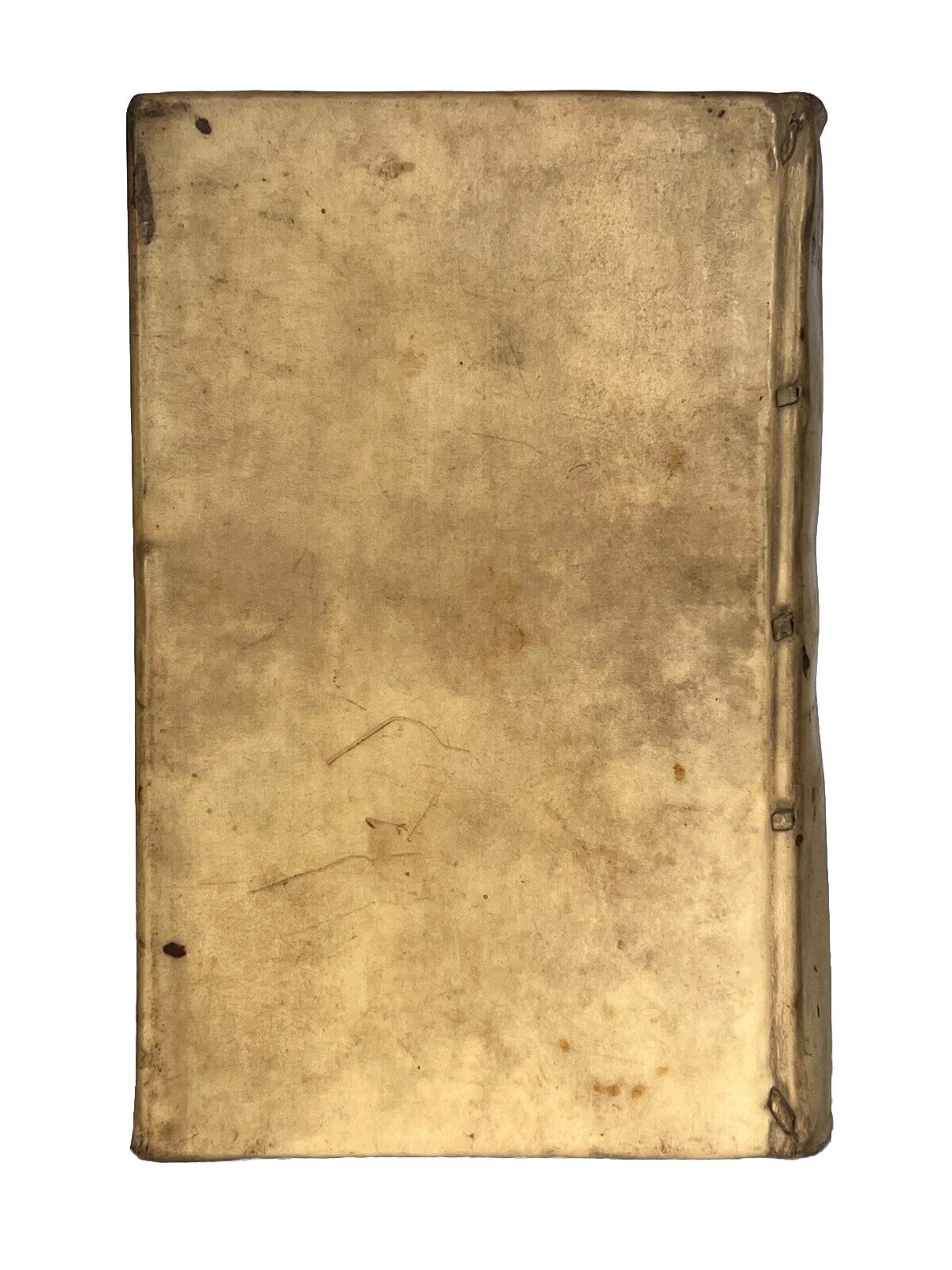Colloquia Familiaria by ERASMUS 1693
Colloquia Familiaria by ERASMUS 1693
Couldn't load pickup availability
Desid. Erasmi Roterodami Colloquia Familiaria Petrus Rabus Roterod recensuit, et Notas perpetuas addidit Accedit Conflictus Thaliae et Barbariei, auctire Erasmo. Roterodami: Regneri Leers, 1693.
Desiderius Erasmus of Rotterdam's Familiar Colloquies, edited by Petrus Rabus of Rotterdam, with continuous notes added. To which is added the Conflict of Thalia and Barbarism, authored by Erasmus. Rotterdam: Regnerus Leers, 1693
-------------------
Familiar Colloquies by Desiderius Erasmus captures the essence of Renaissance humanism and the intellectual ferment that preceded the Reformation. First published in 1518 and continually expanded until Erasmus' death, this collection of dialogues blends wit, satire, and moral instruction, addressing the social, religious, and educational issues of the time.
In this 1693 edition, edited by Petrus Rabus of Rotterdam, the Colloquies are added with his notes. Rabus' annotations are invaluable, providing clarity and commentary that enhance understanding of Erasmus' nuanced arguments.
Erasmus, one of the most important figures of Northern Renaissance humanism, used the Familiar Colloquies to critique the corruption within the Church and the excesses of contemporary society. His dialogues, written in a conversational Latin that was both erudite and engaging, dissect the follies of superstitions, the vices of the clergy, and the absurdities of certain religious practices. Through humour and irony, Erasmus advocated for a return to simple Christian piety and the teachings of Christ, free from the dogma and rituals that he believed had obscured the true message of the Gospel.
This work is not just a collection of literary pieces but a reflection of the critical spirit that fuelled the Reformation. Erasmus' calls for reform, though more moderate than those of Martin Luther, resonated deeply with the growing discontent among the educated classes and the laity. His influence on the Reformation is profound; while he did not break with the Catholic Church, his writings laid the intellectual groundwork for questioning ecclesiastical authority and advocating for theological and institutional renewal.
In addition to the Colloquies, this edition includes The Conflict of Thalia and Barbarism, a lesser known but equally significant work by Erasmus. This allegory contrasts the cultivated grace of Thalia, the muse of comedy, with the brutishness of Barbarism, symbolising the struggle between enlightened humanism and ignorant savagery. It underscores Erasmus' belief in the power of education and eloquence to civilise and uplift humanity.
-------------------
Size: 106 x 167 mm (approx.)
Condition:
[(2), t.p., *3-*7, 4pp, 537pp, 17pp, 1pp, (1)]
Contemporary full vellum binding with title written to head of spine contemporaneously, as often. Vellum a little discoloured but generally very good, structurally secure with both boards securely attached, retaining the original joints. Without shelf lean. Boards tend to splay outwards as often. Without any attached bookplates or ownership inscriptions, exceptionally clean throughout the text block. A remarkable copy. Text ends on 2L5, collated as complete, including the index bound in at the rear and supplementum. Pastedowns starting to separate from boards as often






